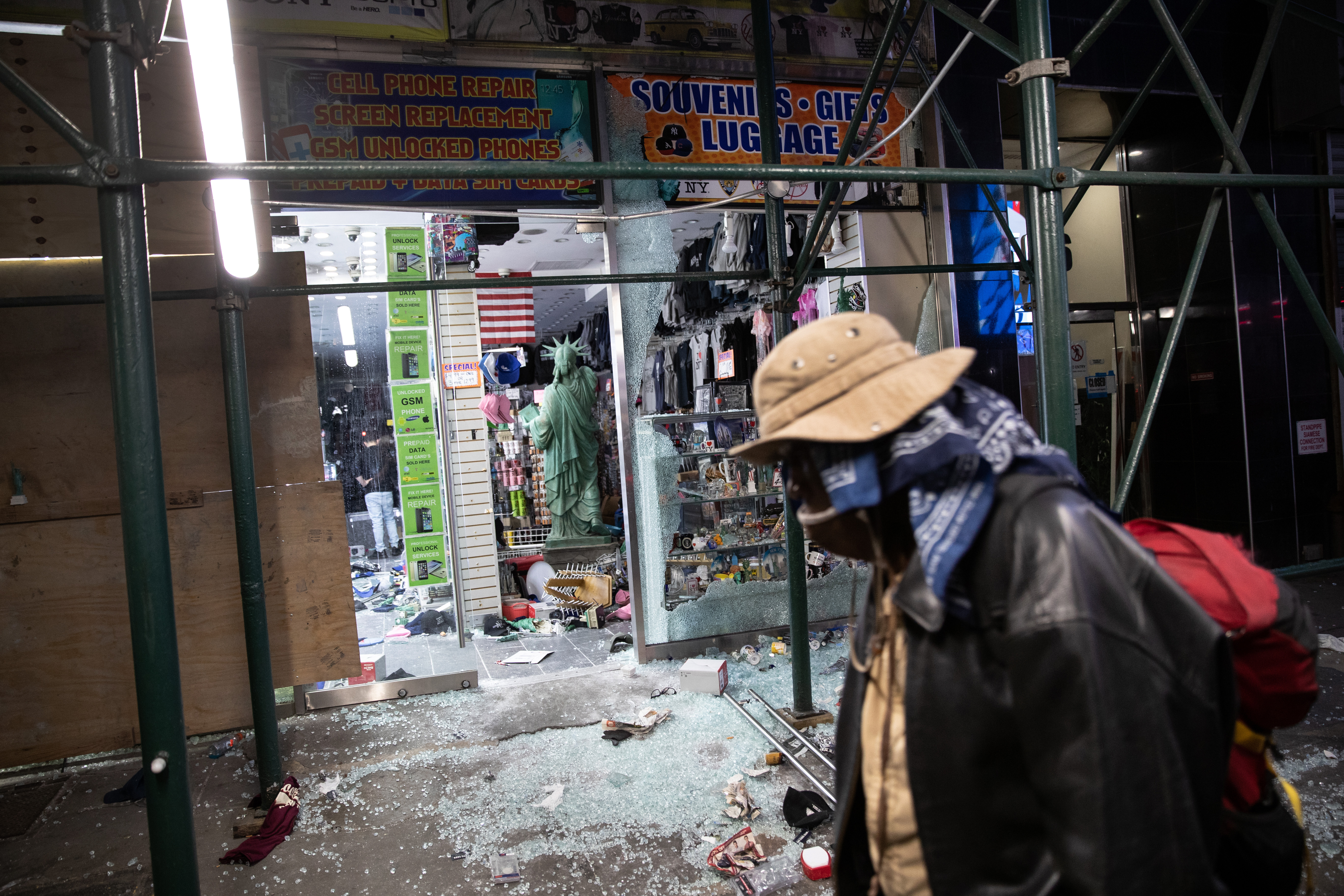Will the protests harm the U.S. economy?
Many businesses are coming out of lockdown only to be hit by riots and looters

A free daily email with the biggest news stories of the day – and the best features from TheWeek.com
You are now subscribed
Your newsletter sign-up was successful
Civil unrest roiling the nation has derailed many businesses' reopening plans, said Sarah Nassauer and Heather Haddon at The Wall Street Journal. Just as temperatures warmed and lockdowns eased, stores in downtown districts were boarded up in anticipation of more protests. The country's largest retailers and restaurants, including Walmart, Target, and McDonald's, have closed hundreds of locations to keep employees safe. Apple closed the majority of its stores, which have been targeted by looters, and even Amazon "scaled back or adjusted delivery routes in a handful of cities." Small-business owner Cynthia Gerdes in Minneapolis called the rioting a "double whammy." She supported the protesters but worried that the "conventions and office workers" that downtown restaurants like hers depend on might not return.
"As if things weren't complicated enough," stores just ready to reopen are now dealing with smashed windows and arson, said Tim Logan at The Boston Globe. In Boston, store owners "were sweeping up glass, installing plywood boards, and taking stock of what — if anything — had been stolen." A bar owner planning to reopen this week found that looters had not only taken all the alcohol but also broken all the mirrors for good measure. "They just kind of destroyed the place," he says. Much the same happened in Seattle, where the damage "may take weeks to fully measure," said Katherine Khashimova Long and Paul Roberts at The Seattle Times. The cost will be millions in property damage but "far more in terms of lost economic activity." Many businesses expressed doubt about their ability to bounce back at all.
Corporate America is still voicing support for the protesters, said Jena McGregor at The Washington Post. Dozens of companies from Netflix to Peloton to Citigroup have publicly aligned themselves with the Black Lives Matter movement, "using words like 'abhorrent' and 'senseless' to speak out more strongly against police violence and racism." ViacomCBS cable properties MTV and Comedy Central suspended programming for 8 minutes and 46 seconds — the length of time that George Floyd was suffocated. A Nike ad that read "Don't pretend there's not a problem in America" was retweeted by rival Adidas.
The Week
Escape your echo chamber. Get the facts behind the news, plus analysis from multiple perspectives.

Sign up for The Week's Free Newsletters
From our morning news briefing to a weekly Good News Newsletter, get the best of The Week delivered directly to your inbox.
From our morning news briefing to a weekly Good News Newsletter, get the best of The Week delivered directly to your inbox.
Sympathy for the protests, though, shouldn't blind us to how they can trigger a resurgence of COVID-19, said Joe Nocera at Bloomberg, damaging the country's economic rebound. It's understandable that angry protesters would forget we are still in a pandemic, "but the consequence is likely to be severe." The combination of the pandemic and the violence could also worsen economic inequity and "push the American economy into a vicious circle," said Anna Szymanski at BreakingViews. The immediate spark for the anger in Minneapolis was police violence, but "the stark economic divide laid bare by the pandemic" also plays an important role. "From Detroit in 1967 to Los Angeles in 1992, political outrage is often mixed with concerns about economic injustice." Yet low-income communities rocked by the protests could also have the hardest time recovering from the twin blows of coronavirus and rioting — creating more economic inequality and more political turmoil.
This article was first published in the latest issue of The Week magazine. If you want to read more like it, you can try six risk-free issues of the magazine here.
A free daily email with the biggest news stories of the day – and the best features from TheWeek.com
-
 The Olympic timekeepers keeping the Games on track
The Olympic timekeepers keeping the Games on trackUnder the Radar Swiss watchmaking giant Omega has been at the finish line of every Olympic Games for nearly 100 years
-
 Will increasing tensions with Iran boil over into war?
Will increasing tensions with Iran boil over into war?Today’s Big Question President Donald Trump has recently been threatening the country
-
 Corruption: The spy sheikh and the president
Corruption: The spy sheikh and the presidentFeature Trump is at the center of another scandal